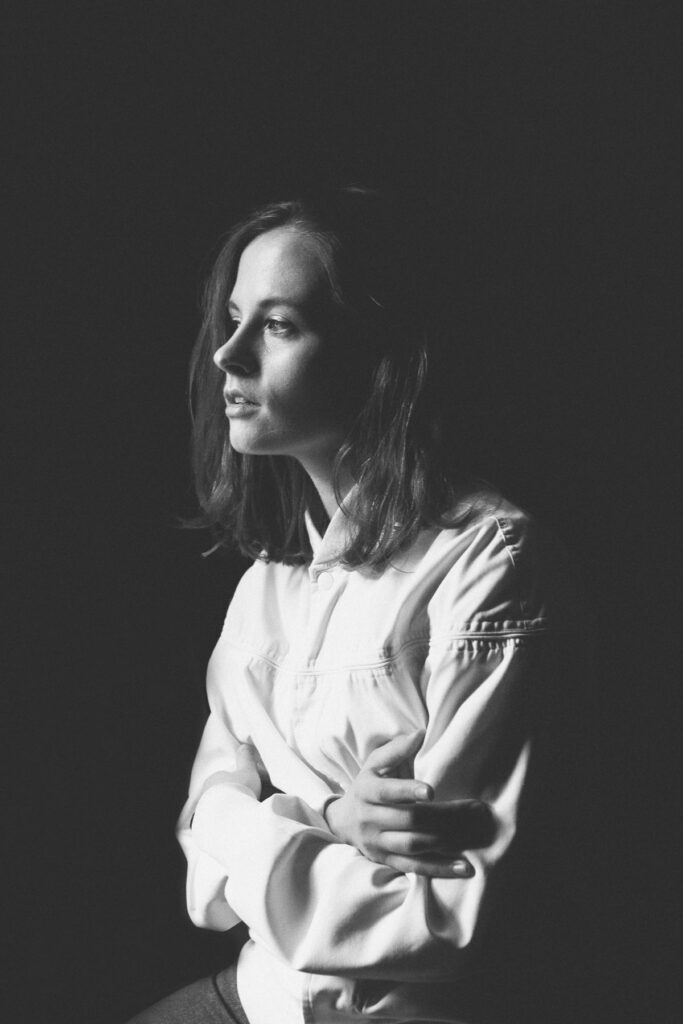Hania Rani

«Creating makes you free wherever you are stuck»
When pianist and composer Hania Rani’s sophomore album came out in May and in the middle of a global pandemic, its title, Home, likely took on greater significance than when it was conceptualised. The album has been described as a ‘metaphorical journey’ through notions of the home; about places that ‘become our home sometimes by chance, sometimes by choice.’ The ambiguity that comes with calling a place ‘home’ is something that Hania surely knows well, dividing her time between Warsaw, ‘home’ home, where she studied classical piano at the prestigious Fryderyk Chopin University of Music, and Berlin, where she now works. As a result of the pandemic, she explains, this is the first time since she was at school that she has stayed in the same place for a long period of time. Hania has been at her parents’ house in Gdánsk, where she grew up, and where she first took piano lessons. The return to her childhood home, during which Home was released has led Hania to re-evaluate the album; ‘I guess we have all changed a bit.’

Back in late March, shortly after lockdown in the United Kingdom had been announced, the presenter Mark Coles profiled Hania for BBC Radio 4. ‘In difficult, troubled times I usually turn to music,’ he notes, ‘each night this week, at the end of the day in lockdown here at home, I’ve sat in the dark after everyone’s gone to bed, […] I’ve poured myself a drink and reached for [Hania’s first solo album, Esja], and lost myself in its simple, minimalist beauty.’ The gentle sounds of Hania’s music certainly provide a soothing experience at a time of upheaval and uncertainty, but also buried in both Esja and Home is a sentiment that allows you to be transported elsewhere. Esja, notably, is named after a mountain near Reykjavik, where Hania travelled in 2017 to record what would become this first album. The process of creating music, Hania explains, can ‘bring you to places that you could never buy a ticket to,’ no more so than when travel is largely not an option right now. ‘Creating makes you free wherever you are stuck at [that] moment,’ she adds, but it’s ‘not enough’ to use music purely as an escape.
Hania came to prominence when Esja was released last April through Gondwana Records. Esja was not just a classical record – not even, strictly speaking, a classical record. A keen interest in the way the piano functions, as a mechanical object, and an appreciation for other genres, like jazz and electronica, gives Esja an ever so slight rawness. This surfaces in moments of sustained reverb, or in instances when the piano can be heard creaking beneath Hania’s craft. These subtle elements mark a deliberate distinction between Hania’s musical training and her role now; ‘As a classical pianist, I was just a performer. As a ‘neo-classical’ [pianist], I am a composer who also performs her own music.’ She likes the lack of limits imposed on neo-classical compositions, as it’s ‘[closer] to the values that I believe in.’ Those values, which begin to appear on Esja, take the forefront on Home. Hania has described her latest release as being the second part of a book, where Esja was the ‘musical prelude to a real plot.’

The transition from Esja to Home is immediately apparent on the album’s opening track, ‘Leaving’, where the piano makes space for Hania’s vocals. The addition of vocals and other elements that appear on the second album, including drums, guitar and synthesisers, confirms Hania’s transition away from classical music proper. It’s a shift that has been on the horizon for a while, too: ‘I have been experimenting with new things for years, but when I signed to Gondwana Records, we all decided to release a solo piano album first.’ The process of creating Esja afforded Hania the opportunity to try things out in the meantime, tracking her progress and maturing her style. Home is, therefore, a record that has been a long time in the coming. Hania describes the process of making Home as involving layers. For the opening song, ‘Leaving’, which was composed in 2018, she consolidated the piano composition and vocals into stems, ‘[editing] each layer a lot [until] I was happy with the result.’ This has become a familiar technique for Hania because of the endless possibilities it affords. Outside of this production process, the layering approach proved helpful in working out the sounds on the album more generally. ‘Each of the new elements came to me naturally,’ and each element was tried, recorded, and evaluated – from the double bass and the drums, to the string quintet that appears on ‘Tennen’ towards the album’s end.
Credits
Photography MARTA KACPRZAK
www.haniarani.com www.music.apple.com/gb/artist/hania-rani